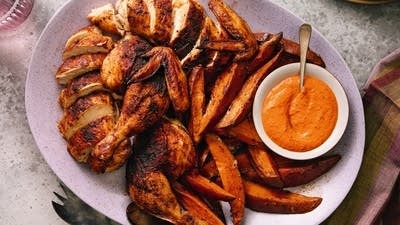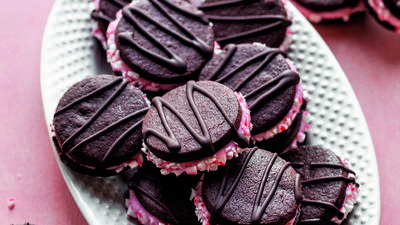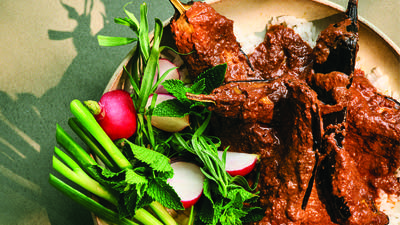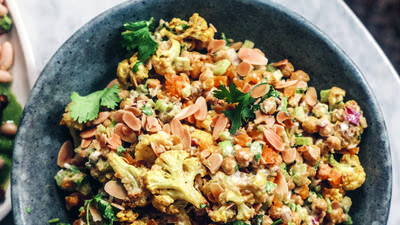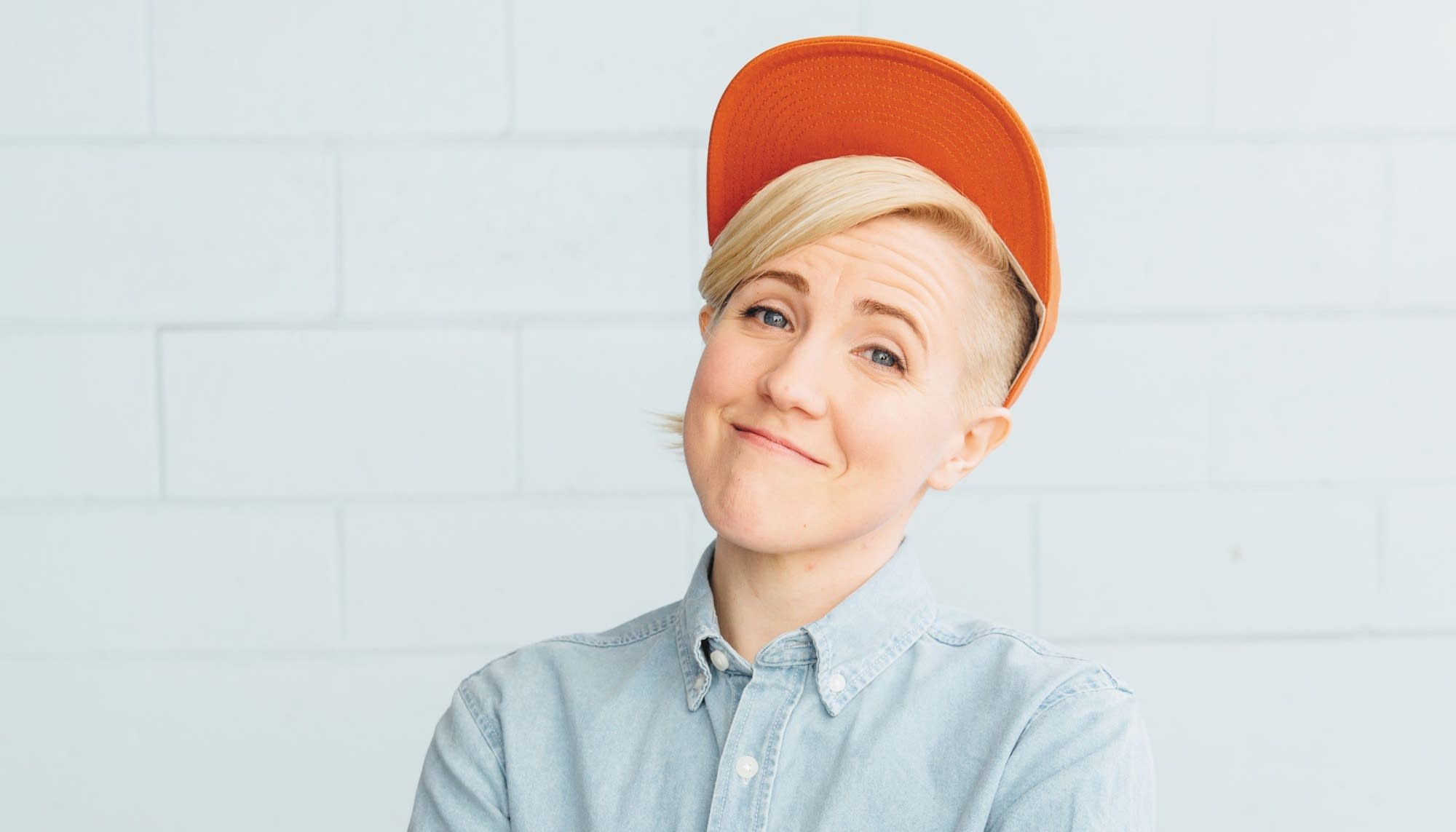
Who says you need cheese in your grilled cheese sandwich? If you’re a bit intoxicated, you might forget little things like that. So began the first video in Hannah Hart’s wildly popular YouTube series My Drunk Kitchen. [Ed. Note: Some videos are for mature audiences only.] Within days, the video went viral. While not exactly teaching viewers how to cook, Hannah certainly makes them laugh. She writes about her experiences in the memoir Buffering: Unshared Tales of a Life Fully Loaded.
Noelle Carter: You shot to fame with your YouTube series My Drunk Kitchen, which premiered in 2011. At the time, it wasn't even a series. Can you tell me about that first video and the genesis of the series?
Hannah Hart: Back in March of 2011, I had recently moved from San Francisco to New York to pursue a job in translation. I was a proofreader working at a translation firm. I studied English literature and Japanese language in college. This was a great opportunity for me. Moving to New York, though, one of my best friends really missed me a lot. One night we were talking on Google Chat with one of those newfangled webcams and using video to talk to each other. She was like, "Dude, I really miss you, man." And I was like "Dude, I miss you too. I want to make a video for you right now." I shot a video into Photo Booth, edited it in iMovie, and sent it to her at 1:00 a.m.
NC: And then it went viral.
HH: Strangers saw it. It went viral to me.
NC: In one part of the book you call yourself an introvert, which surprised me. You spend a lot of time walking a fine line between your public and your private lives. What compelled you to write Buffering right now?
 Buffering by Hannah Hart
Buffering by Hannah Hart
HH: There are certain things in my life that I'm ready to move beyond. I just turned 30. I'm ready to bring my adult self into my adult life and leave what I can of my child self behind. “Buffering” literally refers to that boundary you put in place between the public and the private while you're processing the data of your life, before it's ready to be displayed. Like that little wheel when you're waiting for Netflix to load.
NC: We all have stories about the power of food, the role it plays in our childhood and in shaping our identity. You get incredibly personal in the book about your childhood, from your mother’s mental health issues, to hunger, to vividly picturing the kitchen and the dining room in your home. How did food shape your identity in these early years?
HH: Food wasn't really a presence in our lives.
NC: You were hungry.
HH: We were hungry. I remember right after my great-grandmother died, we didn't have anything to eat. My mom had to go next door to get peanut butter and a loaf of bread from the neighbor. I remember feeling so guilty because she was so upset about her grandmother’s death, and then she had to go ask somebody for bread. She came back and I lost my appetite. I told her, "I'm sorry." We didn't cook as a family. The kitchen was a biohazard, literally declared uninhabitable multiple times.
When my stepdad came and lived with us we ate off of the 99-cent menu from Wendy's. It’s funny, all of my friends now give me a hard time because I'm a really healthy person. When I eat an apple that's from the fall on the East Coast, you're getting a fresh apple and it's juicy. Or like biting into an orange, it’s so rich. People are always like, "God, you're so annoying with wanting to be healthy all the time." And I say to them, "No. Fresh produce is a privilege." We can eat garbage food because it's cheap and there's a poverty of time, but fresh food is a gift.
NC: You’ve mentioned that there's a connection between cooking and comedy. Even when you talk about the serious issues of childhood and other issues growing up, I find you bring humor to it. How are cooking and comedy related?
HH: The relationship between cooking and comedy stems from improvisation. It's about timing and flexibility. That's how you create something unique like a great dish. That being said, cooking also involves expertise and patience, which I don't have. So it may not be the best dish, but it will be unique.
NC: It seems like both are about making people happy.
HH: It's true. Laughter is a spontaneous reaction. You can't help it.
NC: You're feeding off of the reaction you get.
HH: Absolutely. When you're made to laugh, you're just laughing. If you eat something that's delicious and you're just like, "Mmmm," you can't help that reaction.
 Hannah Hart
Photo: YouTube
Hannah Hart
Photo: YouTube
NC: It’s just a visceral reaction. There is this perception of YouTubers, and of many people who find success on social media, that they're narcissists. You write in the book, "It's my belief that people who do YouTube do it for the ability to share. They love sharing their knowledge, their opinions, their expertise, their experience." Can you talk about your channel’s evolution from My Drunk Kitchen to some of the other shows you've produced?
HH: As we said, My Drunk Kitchen started out as a joke. It was a fluke. I didn't realize until I was reading the comment section that people were saying, "This is my new favorite show on YouTube." I was like, "Show on YouTube? What are they talking about?" Then I noticed there was this whole subculture of entertainment growing in the online space. A couple weeks later I made another episode of My Drunk Kitchen. A couple weeks after that I made another. For the fourth video I posted, I did an advice video because I noticed that the comment section was focused on people wanting to hang out with me, which was great because I wanted to hang out with them. It wasn't about the drinking or the cooking. It was more about the relationship that's formed. If life is a house party – or if the online space is a house party – there are different people that go to that house party. There are the people that are dancing in the living room, and you see them as you walk by. Then there are people that are hanging out in the kitchen, which is where I like to hang out at parties because it's quieter. You're still drinking; you're still eating, but you're also getting a more intimate conversation. My Drunk Kitchen brought me to this amazing ball; I'm going to make sure that we do plenty of dancing.
Before you go...
Each week, The Splendid Table brings you stories that expand your world view, inspire you to try something new, and show how food connects us all. We rely on your generous support. For as little as $5 a month, you can have a lasting impact on The Splendid Table. And, when you donate, you’ll join a community of like-minded individuals who love good food, good conversation, and kitchen companionship. Show your love for The Splendid Table with a gift today.
Thank you for your support.
Donate today for as little as $5.00 a month. Your gift only takes a few minutes and has a lasting impact on The Splendid Table and you'll be welcomed into The Splendid Table Co-op.

